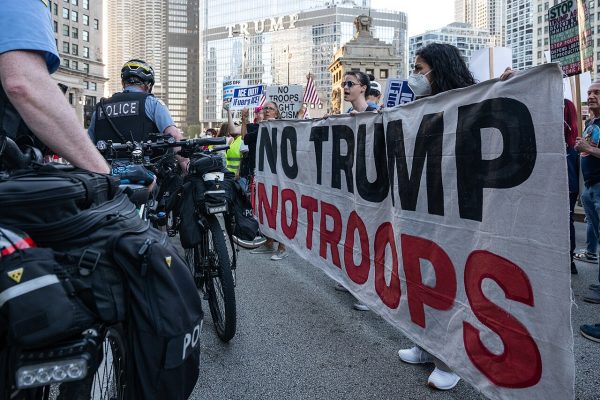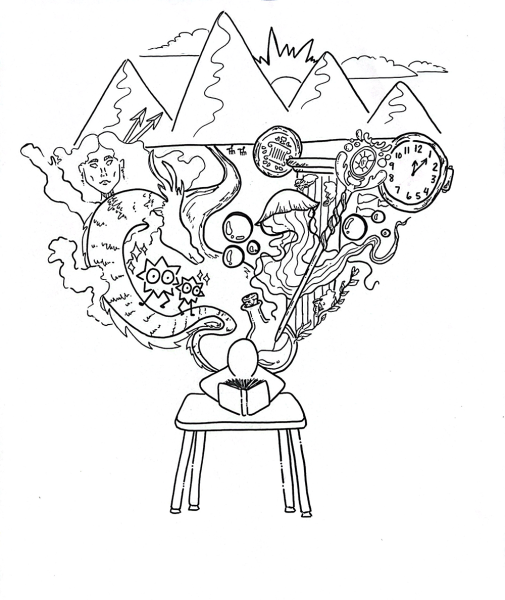A Closer Look at Joe Exotic
Explaining America’s Love Affair With the Tiger King

Mugshot from Santa Rose County Jail in Milton, Florida via Wikimedia Commons.
The ending of Tiger King, with Joe Exotic found guilty of attempted murder-for-hire, feels just.
Joe Exotic is a former zookeeper, internet sensation, 2016 presidential candidate, mullet-sporting gun-toting polygamous redneck libertarian and convicted felon.
But you knew all that, because, like everyone else, you watched all of Tiger King: Murder, Mayhem, and Madness on Netflix while social distancing. So perhaps the question isn’t who Joe Exotic is, rather it’s how Tiger King became a nationwide sensation overnight. Yes, Netflix’s aggressive advertising is a factor, as is America’s reawakened interest in the late Steve Irwin, and yes, one could call Tiger King objectively entertaining, but Netflix produces several docudramas of the same caliber every year. Looking back at the fantastic Evil Genius (2018) or the more recent Don’t F**k With Cats, both of which received comparatively lukewarm attention, Tiger King is standard fare.
Something about Tiger King has struck a chord with the American public. And that something is Joe Exotic. And why? The answer is right in the title of episode five—“Make America Exotic Again”. Joe Exotic is Donald J. Trump.
To be clear, I am not saying that Trump and Joe are the same person (though the resemblance is certainly there). Rather, I would like to argue that the Joe Exotic brand—or at least the one we can consume through Tiger King—is nearly identical to that of our president.
Esthetically, Trump and Exotic overlap pointedly. Both are tan, crude, American-as-apple-pie hotheads. The Joe Exotic brand, after all, is that of the American redneck, and, whether politically correct or not, the American public has generalized Donald Trump as the voice of the redneck community. Where Trump presents his brand via gaudy gold-and-ivory internal decorating, Exotic peddles the brand of being constantly surrounded by tigers and lions. Exotic has Joe Exotic-brand underwear, Trump has Trump steaks. Exotic has “Here Kitty Kitty”, Trump has “covfefe”. Both are born performers and instinctive on-camera personalities, both shove merchandise in your face, both say memorable, ridiculous things, both have iconic horrible blonde hairstyles. Both even have a comic book-style sworn nemesis (Carole Baskin, in Exotic’s case), whom they enjoy harassing online and threatening to throw in prison.
On a deeper psychological level, the viewer attributes the same traits to Joe as to Trump. Both seem viscerally obsessed with not only themselves, but with themselves in a position of supreme power. See Joe Exotic, obsessively watching a pan-over shot of himself on a throne, as the title “Joe Exotic: Tiger King” appears on screen. See Donald Trump, the host of a reality TV show, the premise of which is him firing people. Both seem to be absolutely built on a drive to perhaps not achieve power, but to compile a facsimile of power, to flex it publicly. Both also have a healthy victim complex, blaming their enemies for cruelly slandering them. Both are petty, pathetic people who need to be constantly reminded that they are in control.
But the Trump connection is deeper; not only is Exotic a crass, idiosyncratic man with a Trumpian complex, the audience attributes the same moral judgement to him as they do to Trump. More than just a spectacle, Exotic is a bad person, and the audience understands this. Exotic sells animals to drug dealers and shady cult leaders. Exotic morbidly endangers his young, impressionable workers. Exotic exploits and breeds animals, seemingly without any regard for their well being. So Exotic, in the eyes of a viewer, is more than just this bizarre cocksure buffoon who thinks he’s a god. The Joe Exotic brand is meant to be entertaining and shocking, and the audience knows that by giving into that shock factor, they are part of the problem. There’s no ethical consumption of Joe Exotic.
You may be asking, if Joe Exotic is no more than another Trump, why is Tiger King popular? Americans are sick and tired of seeing and talking about Trump, not hungry for more. Well, Joe Exotic, unlike our current president, feels right in his element. Joe Exotic lives in a literal zoo, and feels right at home alongside other big, scary animals. No one ever gave Joe Exotic nuclear codes or entrusted him with foreign policy decisions; Joe Exotic can’t even hire a hitman without mucking it up! Joe’s henchmen are tattooed meth users, not establishment politicians in suits. To borrow John Mulaney’s terminology, Joe Exotic is the Horse in the hospital, if the Horse had just stayed at the farm. And the ending of Tiger King, with Joe Exotic guilty of attempted murder-for-hire, feels just. This is a criminal who hurt people, exported his scandalous personality as a brand, scoffed at the law in the name of his own apparent magnificence, and was put in prison, where he seemed to always belong. Our fear of Joe Exotic is relieved alongside the tension of the narrative. That’s not something the American public gets from the tale of Trump.
In summary, we as an audience, watching Joe Exotic on Tiger King or Donald Trump on the news, are presented the same exact character: A pompous clown. A self-styled monarch. A dangerous person with the potential to seriously harm many people. Tiger King presents us with a bizarro-Trump who was never elected president, whose businesses all fell apart, who ended up where he deserved to end up: a place from which he can’t hurt anyone else. In Trump’s America, that feeling is comforting, cathartic and rare.

Alice Soprunova (she/her) began writing for the Beachcomber in 2019. She covers stories pertaining to issues of social justice inside and outside BHS....











